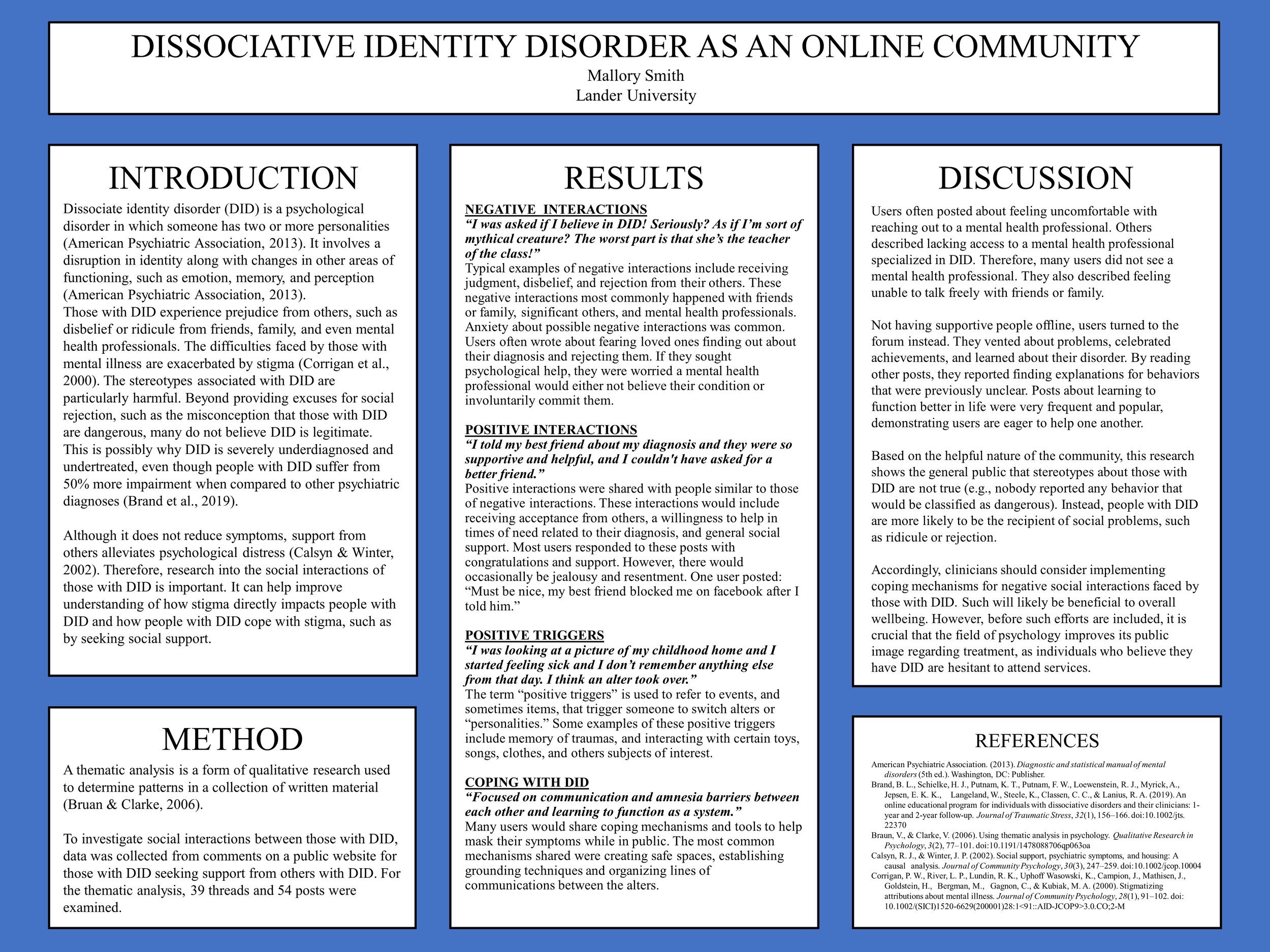Dissociative Identity Disorder as an Online Community
Mallory Smith
Dissociative identity disorder (DID) is a psychological disorder in which someone has two or more personalities. It will also impact other areas of functioning, such as emotion, memory, and cognition. DID is a widely misunderstood disorder that is often highly stigmatized by the general public, sometimes even in the field of clinical psychology. This stigma can add to the stress that often comes with having DID. Learning about the social interactions of people with DID can better help others understand how this stigma directly impacts those with the disorder. To identify prominent social experiences of those with DID, a thematic analysis was done using an online public forum. Four main themes were identified: Positive interactions, negative interactions, dealing with DID, and triggers, with negative interactions being the most common reported theme. Positive and negative interactions reflected the emotional reactions users felt to interactions with others. Coping with DID refers to the actions users took to decrease distressing symptoms related to DID. Triggers were often talked about to share what environments and memories caused DID symptoms to appear or worsen. Despite the stereotype that people with DID are dangerous, the results of the thematic analysis show they are more likely to be the recipient of maltreatment, with the common misperception of the disorder further damaging e the mental health of those with DID.
Mallory Smith is from Rock Hill, SC and a current senior psychology student with minors in human services and child & family studies. They are a member of the Honors College as well as Psi Chi and Alpha Chi honors societies. Mallory will be attending Winthrop University starting this summer to pursue a M.Ed. in clinical mental health counseling.
